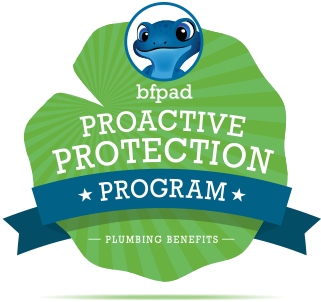
Preventing Calcium Deposits in Fixtures and Pipes
Calcium deposits, often referred to as limescale, are hardened layers of mineral buildup that occur when water with high mineral content flows through plumbing systems. This mineral-rich water, commonly known as hard water, carries dissolved calcium and magnesium. Over time, these minerals can accumulate, forming a white, chalky residue on fixtures and inside pipes.
Common signs of calcium buildup include visible scaling on faucets, showerheads, and sinks. Homeowners may also notice a decrease in water pressure due to narrowed pipes, which restrict flow. Additionally, appliances like dishwashers and washing machines might perform less efficiently as mineral deposits obstruct their mechanisms. If left untreated, these deposits can lead to costly repairs and replacements, making early identification and prevention crucial.
Causes of Calcium Deposits in Fixtures and Pipes
Calcium deposits can seem inevitable in homes with hard water, but understanding their origins is the first step to prevention. These mineral accumulations, which often appear as chalky residue on fixtures and within pipes, stem from the natural composition of your water supply. Factors such as water hardness, local geology, and infrastructure play significant roles in creating the conditions that lead to calcium buildup.
Here are the main causes of calcium deposits:
-
Hard Water: The Leading Cause
Hard water contains high levels of dissolved calcium and magnesium, which are left behind as water evaporates. Over time, these minerals solidify, creating deposits that can clog pipes and impair water flow. The process accelerates with heated water, as higher temperatures make minerals separate from water more quickly.
-
Geological and Environmental Factors
The composition of your local water supply depends heavily on geological conditions. In areas like Denton, TX, limestone-rich soil naturally leaches calcium and magnesium into water, making it harder. Runoff from mineral-heavy areas and certain environmental conditions can further raise the mineral content in groundwater and municipal water supplies.
-
Aging Water Systems and Human Activity
Aging plumbing infrastructure can worsen the problem by adding mineral content to water as pipes corrode over time. Human activities, such as excessive use of groundwater, also increase hardness, as aquifers draw from deeper, mineral-rich layers. Combined, these factors create a perfect storm for calcium buildup in residential plumbing systems.

Impact of Calcium Deposits on Plumbing Systems
Hard water buildup in plumbing systems creates challenges that escalate over time, turning minor inconveniences into significant problems. From reduced efficiency to costly repairs, these mineral deposits leave no part of your plumbing untouched, affecting performance and longevity.
Disrupted Water Flow and Lower Pressure
Over time, mineral layers develop on the inner surfaces of pipes, shrinking the space available for water to flow. This results in noticeable drops in pressure, particularly in high-demand fixtures like showerheads and faucets. In extreme cases, severe blockages can form, halting water flow entirely. Such disruptions not only inconvenience daily routines but also demand professional intervention to restore normal function.
Compromised Appliances and Fixtures
Hard water affects more than just pipes; it infiltrates appliances like dishwashers, washing machines, and water heaters. The deposits clog critical components, forcing appliances to operate less efficiently and consume more energy. This constant strain increases wear and tear, shortening the lifespan of expensive equipment. Fixtures such as faucets and showerheads also suffer from clogging, leaks, and visible scaling, diminishing their appearance and functionality.
Long-Term Damage to Plumbing Infrastructure
Left unchecked, mineral deposits can corrode pipes, leading to cracks and leaks that waste water and escalate repair costs. The structural integrity of plumbing systems weakens over time, often requiring pipe replacement in severely affected areas. This level of damage is not just inconvenient—it is expensive, highlighting the importance of proactive maintenance to prevent buildup.
Identifying Hard Water in Denton, TX
The water flowing into your home might look clear, but its mineral content tells a different story. In regions like Denton, TX, hard water is a persistent challenge for homeowners. Understanding your water’s hardness level not only explains common issues like scaling and clogged fixtures but also empowers you to take proactive steps to protect your plumbing. From local geological factors to simple at-home tests, identifying hard water is easier than you might think.
Water Hardness in Denton and Nearby Areas
Denton’s water supply is naturally rich in minerals due to the area’s limestone deposits. These deposits leach calcium and magnesium into the water, causing moderate to high hardness levels that can vary slightly across neighborhoods. Surrounding areas with similar geology experience comparable conditions. While hard water is not a health risk, it often leaves behind stubborn residue and reduces the efficiency of plumbing systems and appliances, making it an inconvenience that’s hard to ignore.
Simple Methods to Test for Hard Water
Testing your home’s water for hardness is straightforward and can be done in several ways. Home testing kits are readily available and offer accurate readings of mineral concentrations. For a quick check, you can perform a soap test: mix water with liquid soap in a clear container—if the water fails to create a sudsy foam, it is likely hard. For detailed results, local water utility reports or professional water analysis services can provide precise measurements tailored to your area.

Preventive Measures for Homeowners
Calcium deposits can silently wreak havoc on your plumbing system, diminishing water flow and reducing appliance efficiency. Homeowners in Denton, TX, can tackle this common issue with a proactive approach. By combining regular maintenance, advanced water treatment, and proper cleaning techniques, you can effectively protect your plumbing system from costly damage.
Commit to Consistent Maintenance
Prevention starts with routine care. Cleaning showerheads, faucets, and other fixtures with a simple vinegar solution can dissolve early-stage calcium deposits. For water heaters, regular flushing removes sediment that impairs performance and drives up energy bills. These straightforward tasks ensure your plumbing remains free of blockages and mineral buildup.
Invest in a High-Quality Water Softener
A water softener is one of the most effective tools for reducing the risk of calcium deposits. By replacing hard water minerals with sodium or potassium, these systems protect pipes, appliances, and fixtures from scaling. Additionally, softened water improves cleaning efficiency, reduces soap scum, and offers gentler effects on skin and hair. It is a smart, long-term solution for hard water issues.
Leverage Descaling Agents Wisely
For existing calcium buildup, descaling agents can provide quick results. These products dissolve hardened deposits on appliances and fixtures, restoring their function and appearance. Use them sparingly and always follow the manufacturer’s instructions to avoid damaging surfaces. Targeted applications of descaling agents can help restore water flow and protect your home’s plumbing infrastructure.
By staying proactive, homeowners can effectively prevent calcium deposits, safeguard their plumbing, and maintain a more efficient water system.
Professional Solutions Offered by bluefrog Plumbing + Drain of North Dallas
When calcium deposits begin to disrupt your plumbing system, professional intervention is often the most reliable and efficient solution. bluefrog Plumbing + Drain of North Dallas provides a comprehensive range of services to eliminate these stubborn buildups and prevent their return, ensuring your plumbing system operates smoothly and efficiently.
Expert Removal and Long-Term Prevention
Calcium deposits can narrow pipes, damage fixtures, and reduce the efficiency of your appliances. bluefrog Plumbing + Drain uses advanced descaling techniques to remove even the most persistent mineral buildup. Their professional-grade methods restore water flow, improve appliance performance, and protect your plumbing from further damage. For lasting results, they offer the installation of high-quality water softeners that neutralize hard water minerals. By addressing the root cause, these systems prevent calcium deposits from forming in the first place, giving you peace of mind and better water quality.
Why Professional Assessment Matters
Tackling calcium deposits without professional help often leads to incomplete solutions or unintended damage. The skilled technicians at bluefrog Plumbing + Drain bring years of experience to every project, ensuring thorough assessments and targeted interventions. Their expertise allows them to identify hidden buildup and apply effective treatments, saving you from costly future repairs. In addition, their maintenance plans offer continued support, keeping your plumbing system free of deposits and performing at its best.
Choosing bluefrog Plumbing + Drain of North Dallas means partnering with a team that prioritizes quality, efficiency, and customer satisfaction. Trust their expertise to eliminate calcium deposits, extend the life of your plumbing, and protect your home from the challenges of hard water.
Seasonal Considerations for November
As the colder months approach, November is the perfect time to focus on plumbing maintenance. Proper preparation can prevent damage caused by freezing temperatures and ensure your plumbing system runs smoothly through the winter. Taking proactive steps now saves homeowners from costly repairs and inconvenient disruptions later.
Why Pre-Winter Plumbing Maintenance Matters
Winter’s freezing temperatures pose significant risks to plumbing systems. Water left in exposed pipes can freeze, expand, and cause pipes to burst, leading to water damage and expensive repairs. Calcium deposits in pipes exacerbate this risk by narrowing the flow, making it easier for water to freeze. By addressing maintenance in November, homeowners can protect their plumbing before the winter chill sets in.
Tips for Winterizing Your Plumbing
Preparing your plumbing system for colder weather involves a combination of preventative measures. Start by insulating exposed pipes, especially those in unheated areas like basements, garages, and crawl spaces. Pipe insulation reduces the risk of freezing and bursting. Next, drain outdoor hoses and shut off water to outdoor faucets to prevent freezing in external lines. For water heaters, flush out any sediment, including calcium deposits, to ensure it operates efficiently during increased winter usage. Lastly, consider professional plumbing inspections to identify and resolve vulnerabilities before they become costly problems.
Taking these steps in November safeguards your plumbing system from winter’s harsh conditions. With a little preparation, you can enjoy a season free of plumbing emergencies and avoid unnecessary expenses.
Environmental and Health Implications
Calcium deposits and hard water don’t just impact your plumbing—they can have lasting effects on personal health and the environment. Addressing these issues thoughtfully ensures your home and habits remain safe and sustainable.
Hard Water’s Impact on Skin and Hair
Hard water’s high mineral content leaves behind a residue that disrupts your skin and hair’s natural balance. This residue strips moisture, leading to dry, flaky skin and aggravating conditions like eczema. For hair, calcium deposits create a coating that dulls its appearance and reduces the effectiveness of shampoos and conditioners. Over time, this buildup weakens hair strands, leaving them brittle and harder to style. Transitioning to softened water can alleviate these issues, promoting softer skin and shinier, more manageable hair.
Environmental Concerns of Chemical Descalers
Chemical descalers, though effective for removing calcium deposits, can negatively affect the environment. Many of these products contain harsh acids that enter water systems and harm aquatic ecosystems. Improper disposal or overuse exacerbates this impact, making it crucial to consider alternatives. Eco-friendly solutions, such as vinegar-based descalers or citric acid cleaners, offer effective results with minimal environmental harm. Installing a water softener eliminates the need for frequent descaling, reducing chemical use and safeguarding the planet while preventing calcium deposits from forming in the first place.
By addressing the health effects of hard water and adopting environmentally conscious practices, you can maintain a healthier home while reducing your environmental footprint. Prioritizing sustainable solutions ensures that both your plumbing and the planet benefit in the long run.
Cost Implications of Neglecting Calcium Deposits
Calcium deposits may seem harmless at first, but ignoring them can lead to a chain reaction of costly problems. Hard water, the main culprit behind these deposits, silently damages your plumbing system and appliances over time. Homeowners often underestimate the financial impact until the issues become severe.
Higher Utility Bills
When calcium deposits form inside pipes and appliances, they create blockages that reduce efficiency. For example, water heaters covered in mineral buildup take longer to heat water, consuming more energy. Dishwashers and washing machines with clogged components require extra water to complete cycles. These inefficiencies lead to higher utility bills, which can steadily increase month after month.
Frequent Appliance Repairs and Replacements
Hard water shortens the lifespan of appliances by causing them to work harder and wear out faster. Calcium deposits clog vital components in water heaters, washing machines, and dishwashers, resulting in frequent breakdowns. Showerheads and faucets also suffer from scaling, leading to reduced functionality and early replacement. Repeated repairs and replacements quickly add up, making untreated calcium buildup a costly oversight.
Major Plumbing Expenses
The long-term effects of calcium deposits on your plumbing system can be devastating. Over time, the buildup corrodes pipes, causes leaks, and leads to complete blockages. These issues often escalate into emergencies requiring expensive repairs or even pipe replacements. In severe cases, the damage can compromise your home’s plumbing infrastructure, leading to water damage and additional repair costs.
Hidden Costs of Neglect
Beyond the obvious expenses, neglecting calcium deposits affects your home’s overall value. Plumbing systems in poor condition can deter potential buyers and decrease property value. Additionally, the time and stress of dealing with recurring plumbing problems are costs no homeowner wants to face.
Investing in solutions like water softeners, professional descaling, and regular maintenance prevents these issues and saves significant money in the long run. A proactive approach not only protects your plumbing system but also ensures peace of mind for years to come.
Contact Us Today
Calcium deposits can silently damage your plumbing, reducing water flow, increasing energy costs, and leading to expensive repairs. Do not let these issues disrupt your home—contact bluefrog Plumbing + Drain of North Dallas today for expert care. Our skilled professionals remove stubborn buildup, restore your plumbing’s efficiency, and provide long-term protection against future problems. With advanced techniques and tailored solutions, we ensure your system runs smoothly and reliably. Delaying action only makes repairs more costly. Call now or visit our website to schedule your service. Protect your plumbing with the trusted team at bluefrog Plumbing + Drain of North Dallas!
Frequently Asked Questions (FAQs)
-
What are the early signs of calcium deposits in plumbing?
Early signs of calcium deposits include white, chalky residue on faucets, showerheads, and sinks. Reduced water pressure and clogged fixtures are common indicators, as mineral buildup narrows pipes. Appliances such as dishwashers and water heaters may also become less efficient, signaling hard water issues.
-
How often should water softeners be serviced?
Water softeners require annual servicing to maintain effectiveness. Regular checks involve inspecting salt levels, cleaning brine tanks, and ensuring no blockages. Proper maintenance helps prevent calcium deposits and extends the lifespan of your plumbing system, keeping hard water issues under control.
-
Are there natural methods to prevent calcium buildup?
Yes, natural remedies like vinegar or lemon juice can help manage small-scale calcium buildup. Soaking fixtures in vinegar dissolves minor deposits, while flushing water heaters remove sediment. For lasting prevention, combining these methods with a water softener is the most effective approach.
-
Can calcium deposits affect drinking water quality?
Calcium deposits typically do not pose health risks, but they can alter the taste and appearance of drinking water. Excessive mineral buildup might leave residue in glasses or cause water to appear cloudy. A water treatment system can improve aesthetics without compromising safety.
-
What is the lifespan of plumbing systems in hardwater areas?
In hard water areas, plumbing systems often experience reduced lifespans due to persistent calcium deposits. Corrosion, clogs, and pressure issues frequently shorten their durability. Regular maintenance and installing water softeners can significantly extend their lifespan, often by decades.



















